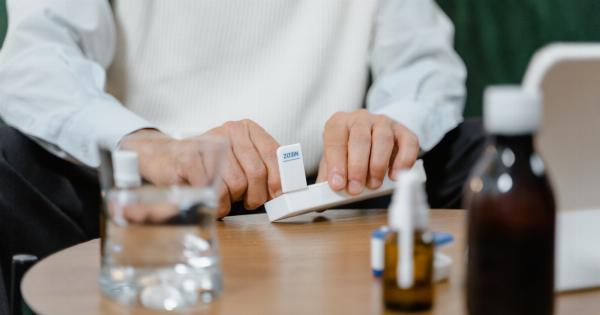Atopic dermatitis, also known as eczema, is a common skin condition in babies. It typically causes dry, itchy skin, redness, and rashes on the face, scalp, and other parts of the body.
If your infant has been diagnosed with atopic dermatitis, there are several things you can do to help manage their symptoms and keep their skin healthy. Here are some tips for parents:.
1. Keep your baby’s skin moisturized
Dry skin is a common trigger for atopic dermatitis. To help prevent flare-ups, make sure to keep your baby’s skin moisturized.
Use a mild, fragrance-free moisturizer specifically designed for babies and apply it to your baby’s skin at least once a day, preferably after a bath or shower when their skin is damp. Avoid using products that contain harsh chemicals, fragrances, or dyes, as these can irritate your baby’s skin and make their symptoms worse.
2. Avoid triggers
Environmental factors like dry air, heat, and sweat can all trigger atopic dermatitis symptoms. Try to keep your baby cool and dry, especially during hot weather or when they’re playing sports.
Also, avoid using harsh soaps and detergents that can irritate their skin. If your baby has a food allergy, try to avoid that food as much as possible to prevent allergic reactions that can worsen their eczema symptoms.
3. Dress your baby in soft, breathable clothes
Fabric can play a big role in the management of atopic dermatitis. Dress your baby in soft, breathable clothes that won’t irritate their skin. Avoid rough or scratchy fabrics like wool or synthetic materials.
Cotton is a good choice, as it’s soft and breathable and less likely to cause irritation. Be cautious when dressing your baby too warmly, as sweating can worsen the eczema symptoms.
4. Keep your baby’s nails trimmed short
Your baby’s nails may scratch their skin and cause further irritation and infection. Keep their nails trimmed short to reduce the risk of this happening.
Also, try to prevent your baby from scratching their skin by using mittens or gloves at night or during naps. This will help to minimize the risk of further skin damage.
5. Use prescribed medication as advised by your doctor
If your baby’s eczema symptoms are severe or if they’re not responding to home management, your doctor may prescribe medication to help control their symptoms. These may include topical creams or ointments, oral medications or phototherapy.
It’s important to follow your doctor’s instructions carefully when it comes to taking medication or using creams and ointments.
6. Keep a daily record of your baby’s symptoms and triggers
Keeping a record of your baby’s symptoms and triggers can help you identify patterns that could be contributing to their condition. Record when your baby’s skin flares up and what they were doing or exposed to at the time.
This can help identify triggers and allow you to take proactive steps to minimize exposure in the future.
7. Seek support
Raising a baby with eczema can be challenging. Don’t be afraid to seek support from other parents who are going through the same thing.
There are support groups, online forums, and community resources available to help you find the advice and help you need to manage your infant’s symptoms.
8. Practice good hygiene
Good hygiene can help reduce the risk of infection in infants with atopic dermatitis. Wash your baby’s hands frequently with soap and water, especially after changing diapers or using the bathroom.
Use a mild soap that is free of fragrance and other irritants and avoid using hot water while bathing your infant.
9. Use a humidifier to add moisture to the air
Dry air can irritate your baby’s skin and trigger eczema symptoms. Using a humidifier can help add moisture to the air and keep your home environment more comfortable for your child.
Make sure to keep the humidifier clean to avoid mold and bacteria growth.
10. Be patient
Managing eczema symptoms in infants can be challenging and it may take some time to find the right combination of treatments that work best for your child. Be patient and remain persistent in following your doctor or specialist’s advice.
With time, you will be better equipped to support your infant and manage their eczema symptoms.






























